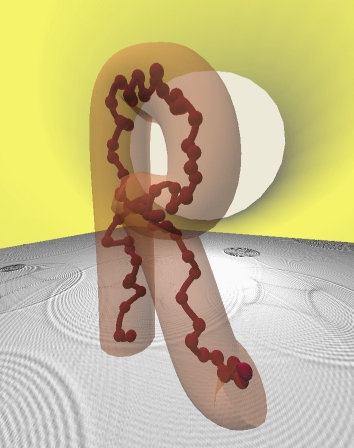# RepTate: Rheology of Entangled Polymers: Toolkit for the Analysis of Theory and Experiments
# --------------------------------------------------------------------------------------------------------
#
# Authors:
# Jorge Ramirez, jorge.ramirez@upm.es
# Victor Boudara, victor.boudara@gmail.com
#
# Useful links:
# http://blogs.upm.es/compsoftmatter/software/reptate/
# https://github.com/jorge-ramirez-upm/RepTate
# http://reptate.readthedocs.io
#
# --------------------------------------------------------------------------------------------------------
#
# Copyright (2017-2023): Jorge Ramirez, Victor Boudara, Universidad Politécnica de Madrid, University of Leeds
#
# This file is part of RepTate.
#
# RepTate is free software: you can redistribute it and/or modify
# it under the terms of the GNU General Public License as published by
# the Free Software Foundation, either version 3 of the License, or
# (at your option) any later version.
#
# RepTate is distributed in the hope that it will be useful,
# but WITHOUT ANY WARRANTY; without even the implied warranty of
# MERCHANTABILITY or FITNESS FOR A PARTICULAR PURPOSE. See the
# GNU General Public License for more details.
#
# You should have received a copy of the GNU General Public License
# along with RepTate. If not, see <http://www.gnu.org/licenses/>.
#
# --------------------------------------------------------------------------------------------------------
"""Module ApplicationUniversalViewer
Definition of a new Application for viewing generic txt data
"""
from RepTate.gui.QApplicationWindow import QApplicationWindow
from RepTate.core.View import View
from RepTate.core.FileType import TXTColumnFile
from numpy import *
import numpy as np
import re
import configparser
[docs]
class ViewParseExpression(object):
"""Auxiliary class to define views that must parse an expression before being shown"""
def __init__(self, name="", n=1, col_names=[], xexpr=[], yexpr=[], parent=None):
self.parent = parent
self.name = name
self.n = n
self.col_names = col_names
self.xexpr = xexpr
self.yexpr = yexpr
safe_list = [
"sin",
"cos",
"tan",
"arccos",
"arcsin",
"arctan",
"arctan2",
"deg2rad",
"rad2deg",
"sinh",
"cosh",
"tanh",
"arcsinh",
"arccosh",
"arctanh",
"around",
"round_",
"rint",
"floor",
"ceil",
"trunc",
"exp",
"log",
"log10",
"fabs",
"mod",
"e",
"pi",
"power",
"sqrt",
]
self.safe_dict = {}
for k in safe_list:
self.safe_dict[k] = globals().get(k, None)
[docs]
def view(self, dt, file_parameters):
"""Actual function that processes the expression, extracts variables, file parameters and columns, and produces the view"""
x = np.zeros((dt.num_rows, self.n))
y = np.zeros((dt.num_rows, self.n))
for i in range(self.n):
# First we do it with x
if i < len(self.xexpr):
expression = self.xexpr[i].replace("^", "**")
else:
expression = self.xexpr[0].replace(
"^", "**"
) # For x, it is not necessary to provide all expressions
# Find FILE PARAMETERS IN THE EXPRESSION
fparams = re.findall("\[(.*?)\]", expression)
for fp in fparams:
if fp in file_parameters:
self.safe_dict[fp] = float(file_parameters[fp])
else:
self.parent.logger.warning(
"File parameter not found. Review your views"
)
self.safe_dict[fp] = 0.0
expression = expression.replace("[", "").replace("]", "")
# Find Columns in the expression
cols = re.findall("\{(.*?)\}", expression)
for cl in cols:
if cl in self.col_names:
ind = self.col_names.index(cl)
self.safe_dict[cl] = dt.data[:, ind]
else:
self.parent.logger.warning("Column not found. Review your views")
self.safe_dict[fp] = np.zeros_like(dt.data[:, ind])
expression = expression.replace("{", "").replace("}", "")
try:
x[:, i] = eval(expression, {"__builtins__": None}, self.safe_dict)
except NameError as e:
self.parent.logger.exception(
"Error in view (%s) x[%d]" % (self.name, i)
)
except TypeError as e:
self.parent.logger.exception(
"Error in view (%s) x[%d]" % (self.name, i)
)
except Exception as e:
self.parent.logger.exception(
"Error in view (%s) x[%d]" % (self.name, i)
)
# Now do the same for y
expression = self.yexpr[i].replace("^", "**")
# Find FILE PARAMETERS IN THE EXPRESSION
fparams = re.findall("\[(.*?)\]", expression)
for fp in fparams:
if fp in file_parameters:
self.safe_dict[fp] = float(file_parameters[fp])
else:
self.parent.logger.warning(
"File parameter not found. Review your views"
)
self.safe_dict[fp] = 0.0
expression = expression.replace("[", "").replace("]", "")
# Find Columns in the expression
cols = re.findall("\{(.*?)\}", expression)
for cl in cols:
if cl in self.col_names:
ind = self.col_names.index(cl)
self.safe_dict[cl] = dt.data[:, ind]
else:
self.parent.logger.warning("Column not found. Review your views")
self.safe_dict[fp] = np.zeros_like(dt.data[:, ind])
expression = expression.replace("{", "").replace("}", "")
try:
y[:, i] = eval(expression, {"__builtins__": None}, self.safe_dict)
except NameError as e:
self.parent.logger.exception(
"Error in view (%s) y[%d]" % (self.name, i)
)
except TypeError as e:
self.parent.logger.exception(
"Error in view (%s) y[%d]" % (self.name, i)
)
except Exception as e:
self.parent.logger.exception(
"Error in view (%s) y[%d]" % (self.name, i)
)
return x, y, True
[docs]
class ApplicationUniversalViewer(QApplicationWindow):
"""Application for viewing generic txt data described by ini files"""
appname = "Universal Viewer"
description = "Universal Viewer Application" # used in the command-line Reptate
extension = "" # drag and drop this extension automatically opens this application
# html_help_file = ''
def __init__(self, name="Universal Viewer", parent=None, inifile=None, nplot_max=1):
"""**Constructor**"""
self.inifile = inifile
self.config = configparser.ConfigParser()
self.config.read_file(open(inifile))
super().__init__(name, parent, nplot_max=nplot_max)
# FILES
# set the type of files that ApplicationUniversalViewer can open
ftype = TXTColumnFile(
name=self.config.get("file1", "name"),
extension=self.config.get("file1", "extension").split(".")[1],
description=self.config.get("file1", "name"),
col_names=self.config.get("file1", "Colnames").split(","),
basic_file_parameters=self.config.get("file1", "Parameters").split(","),
col_units=["units_col1", "units_col2"],
)
self.filetypes[ftype.extension] = ftype
# VIEWS
# set the views that can be selected in the view combobox
nv = 0
moreviews = True
self.viewclasses = {}
while moreviews:
if "view%d" % (nv + 1) in self.config.sections():
nv += 1
xexpr = self.config.get("view%d" % nv, "xexpr").split(",")
yexpr = self.config.get("view%d" % nv, "yexpr").split(",")
name, x_label, y_label = self.config.get("view%d" % nv, "name").split(
","
)
x_units, y_units = self.config.get(
"view%d" % nv, "units", fallback="-,-"
).split(",")
n = self.config.getint("view%d" % nv, "n", fallback=1)
self.viewclasses[name] = ViewParseExpression(
name,
n,
col_names=ftype.col_names,
xexpr=xexpr,
yexpr=yexpr,
parent=self,
)
log_x = self.config.getboolean("view%d" % nv, "logx", fallback=False)
log_y = self.config.getboolean("view%d" % nv, "logy", fallback=False)
snames = self.config.get("view%d" % nv, "snames", fallback=',,,,,,,,,,,,').split(",")
self.views[name] = View(
name=name,
description=name,
x_label=x_label,
y_label=y_label,
x_units=x_units,
y_units=y_units,
log_x=log_x,
log_y=log_y,
view_proc=self.viewclasses[name].view,
n=n,
snames=snames,
)
else:
moreviews = False
# set multiviews
# default view order in multiplot views, set nplots=1 for single view
self.nplots = self.config.getint("application", "ncharts")
self.multiviews = []
for i in range(self.nplot_max):
# set views in the same order as declared above
self.multiviews.append(list(self.views.values())[i])
self.multiplots.reorg_fig(self.nplots)
# THEORIES
self.add_common_theories() # Add basic theories to the application
# set the current view
self.set_views()
[docs]
def viewyx(self, dt, file_parameters):
"""Example View function"""
x = np.zeros((dt.num_rows, 1))
y = np.zeros((dt.num_rows, 1))
x[:, 0] = dt.data[:, 0]
y[:, 0] = dt.data[:, 1]
return x, y, True
